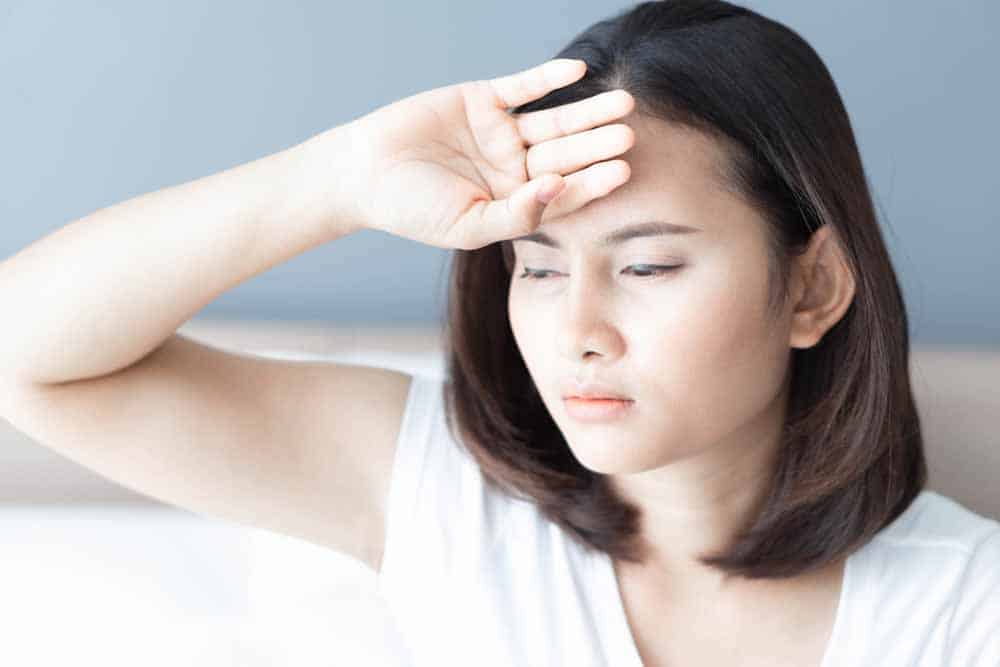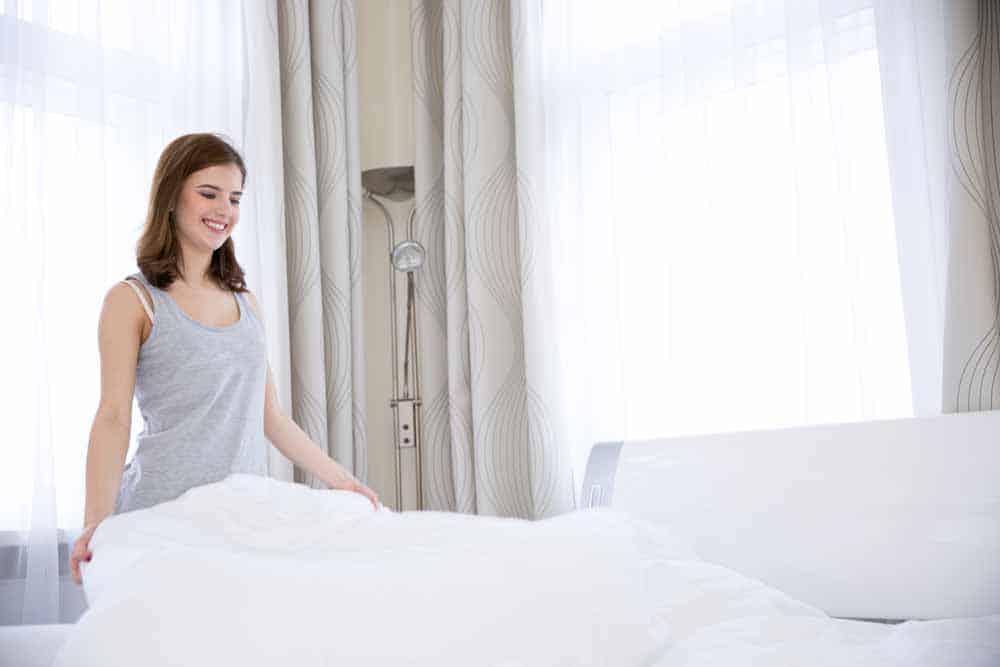
You might be suffering from night sweats, otherwise known as sleep hyperhidrosis. This condition entails nightly episodes of sweating where your sheets ended getting up drenched.
According to Health Direct Australia, about 3 out of 100 Aussies suffer from night sweats and the condition varies from normal to heavy occurrences. Waking up with sweat can be due to the bedroom environment or an underlying medical illness.
Do you find yourself awake at night and drenched in perspiration? Read our article about night sweats and how to deal with them.

What causes night sweats?
Night sweats are caused by different factors including bedroom environment, health condition, or lifestyle.
Environmental causes
Environmental causes can consist of the weather or bedroom environment one find him or herself in it.
Weather
Hot, humid weather always make us sweat at night. Oftentimes, the warm air will flow through the room or affect your bedroom in some ways – vent, building material, etc.
Bedroom environment
An over-hated bedroom can make you sleep hot. This happens when there’s poor ventilation, overuse of beddings, and bedroom construction (wall material, structure, overall position).
Lifestyle causes
Too often, it’s our own choices that lead to sleeping hot, thus, suffering from night sweats.
Eating spicy foods
People sweat when they eat spicy food – and this can go on when they’re sleeping depending on how long they’ve just eaten the food. One instance is pepper where it contains capsaicin which makes your body feel warmer, so you sweat to cool down.
Alcohol
Drinking alcohol increases the heart rate and widens blood vessels in your skin which generates sweat. If you’ve been drinking alcohol near bedtime, you’re likely to experience them during sleep as your body needs to cool down. What’s more, night sweats are a general occurrence to someone who has withdrawn from alcohol.
Smoking
Likewise, nicotine releases a chemical called acetylcholine in the body. This chemical raises your heart rate, body temperature, and blood pressure enough to trigger sweat. Like alcohol, sudden withdrawal from smoking cause excessive sweating.
Stress, anger, anxiety
Have you ever heard of the term, “hot head?” It’s true. When you get angry, your body raises your body temperature, blood pressure, and heart rate – all factors which contributes to sweating. Stress and anxiety contributes to sweaty palms, forehead, and armpits in general.
Health
Night sweats serve as symptoms of an underlying condition. If so, it’s important to see a doctor for diagnosis and treatment.
Idiopathic hyperhidrosis
It’s a known body condition where a person sweats too much without any causes.
Menopause
The most common cause of sweat among women is menopause. It’s accompanied by feelings of redness and hot flashes which is contributory to night sweats.
Hypoglycemia
People taking medications for diabetes (and even those with low blood sugar) experience night sweats as side effects of the medication.
Hormone disorders
Hormonal disorders such as hyperthyroidism, carcinoid syndrome, and polycystic ovary syndrome (PCOS) are accompanied with symptoms such as night sweats and flushing.
Medications
Your night sweats might have been triggered by a number of medications you’re taking. Examples of these drugs are antidepressant, pain relievers, asthma inhalers, lupron, and more. Ask your doctor for drug substitutes in case you’re excessively sweating at night.

How to treat night sweats
Treatment for night sweats depends on the factor causing it. For instance, hormone imbalances can be attended by giving hormonal replacement therapies while bedroom-related issues can be solved by changing your sheets or mattresses.
Change for the weather and bedroom environment
You can address night sweats by improving the ventilation in your bedroom. This can be achieved by opening the windows, turning your fans or ACs on, or allowing some plants inside. For your bed, why not change the sheets, mattress, or pillows if it’s making you warm? Invest in sleeping products that can make you sleep cooler at night.
Avoid eating spicy foods before bedtime
Don’t try eating spicy foods near bedtime as it can trigger night sweats. At the same time, these types of foods can cause gastroesophageal reflux disease or GERD. It’s akin to heartburn and acid reflux where the stomach acid flows back to the esophagus.
Lessen alcohol and smoking intake
Avoid drinking alcohol and smoking four hours before sleeping if you can. Limit your nicotine and liquor as it can raise body temperature – which causes night sweats. If you’re planning to stop taking these substances, we advise you to go slowly.
De-stress, breathe, and meditate
Don’t go to sleep angry and worried, lest you want to drench yourself with sweat all night. Try meditating and incorporate breathing practices in your life. You can feel your worries flow away as you calm yourself to sleep.
Talk to your doctor
If any changes don’t help you at all, talk to your doctor about the condition if you have recurring episodes of night sweats. It’s best to seek professional help to rid you of the condition.



